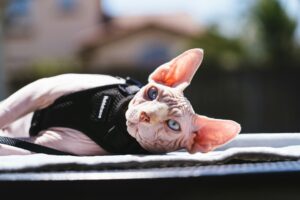
Table of Contents
ToggleAre Hairless Cats Hypoallergenic?
Hairless cats, with their striking appearance and lack of fur, often attract people who love cats but struggle with allergies. One of the most common questions about these unique pets is whether they are hypoallergenic. If you’re thinking about bringing a hairless cat into your home, it’s essential to understand what hypoallergenic means and whether these cats fit the bill. Let’s explore this topic and see what you need to know.
What Causes Cat Allergies?
To grasp how hypoallergenic hairless cats are, it’s helpful to first understand what causes cat allergies. Most cat allergies stem from proteins in cat saliva, skin cells (dander), and urine. When a cat grooms itself, it spreads these proteins onto its fur. As the fur sheds, these proteins get released into the environment, which can trigger allergic reactions in sensitive people.
The main protein responsible for most cat allergies is called Fel d 1. This protein is found in the skin and saliva of all cats, not just certain breeds. So, no matter the breed or hair type, the amount of Fel d 1 can vary from one cat to another.
What Does Hypoallergenic Mean?
“Hypoallergenic” means something is less likely to trigger an allergic reaction. In the world of cats, a hypoallergenic breed is supposed to produce fewer allergens or have less of the proteins that commonly trigger allergies. However, it’s important to remember that no cat breed is completely free of allergens.
Are Hairless Cats Truly Hypoallergenic?
Hairless cats, like the Sphynx, Cornish Rex, and Devon Rex, are often labeled as hypoallergenic. The idea is that since they don’t have fur, they might not spread allergens as much as cats with coats. But is this the case? Here’s a closer look:
- Less Fur, Not Less Allergens: Even though hairless cats don’t shed fur, they still produce dander and saliva, which contain Fel d 1 proteins. These proteins are present in their skin oils and saliva, so hairless cats can still cause allergic reactions in some people.
- More Skin Oils: Without fur to absorb their skin oils, hairless cats can have more oil buildup on their skin. This might lead to more frequent cleaning and possibly higher levels of allergens being spread around your home.
- Breed Differences: Different hairless breeds can have varying levels of allergens. For instance, the completely hairless Sphynx may have different allergen levels compared to the Cornish Rex or Devon Rex, which have short, curly fur.
Comparing Hairless Cats to Other Breeds
If you’re curious about how hairless cats stack up against other breeds, you might want to check out Are Maine Coon Cats Hypoallergenic. Maine Coons, despite their long fur, are sometimes considered for allergy-friendly homes, though individual reactions vary.
Understanding other factors related to cat health, such as Can Cats Have Popcorn, can also provide valuable insights into caring for your pet and managing allergens.
Personal Experience and Allergies
Even if hairless cats aren’t completely hypoallergenic, some people with cat allergies find they have fewer symptoms around these cats compared to others. This might be due to the reduced amount of fur and the fact that these cats might groom less often.
If you’re considering adopting a hairless cat and have a history of allergies, it’s crucial to spend time with the cat first. This will help you gauge your reaction and decide if living with a hairless cat is manageable for you.
Tips for Managing Allergies with Hairless Cats
If you’re determined to get a hairless cat but worry about allergies, here are some tips to help manage your symptoms:
- Regular Baths: Hairless cats need regular baths to remove excess skin oils. This can help reduce the amount of allergens on their skin.
- Keep Your Home Clean: Regular cleaning is essential. Vacuum frequently and dust regularly to minimize allergen buildup. Don’t forget to wash bedding and toys too.
- Use Air Purifiers: Air purifiers with HEPA filters can help capture airborne allergens and improve air quality in your home.
- Consider Allergy Medications: Over-the-counter or prescription allergy medications can help manage symptoms for those with mild allergies. Contact your doctor for the best options for you.
- Consult an Allergist: If your allergies are severe, an allergist can provide personalized advice and treatment options.
5 Best Hairless Cats: Unique and Lovable Breeds
Hairless cats are known for their unique appearance and lovable personalities. These cats often attract attention due to their lack of fur, but they are more than just their looks. Hairless cats are typically affectionate, and playful, and make excellent companions. If you’re interested in adopting a hairless cat, this guide will introduce you to the 15 best hairless cat breeds.
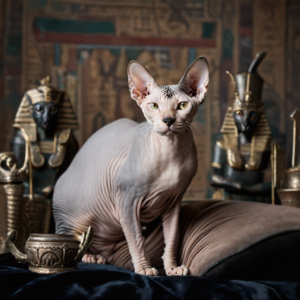
1. Sphynx
The Sphynx is perhaps the most well-known hairless cat breed. Originating from Canada, the Sphynx is characterized by its wrinkled skin and large ears. Despite their lack of fur, Sphynx cats have a warm, suede-like texture to their skin. They are known for their playful and affectionate nature, often seeking human attention and companionship.
Key Characteristics:
- Friendly and sociable
- Energetic and playful
- Requires regular bathing to remove excess oils from the skin
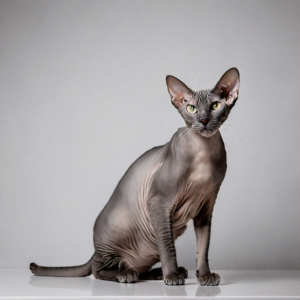
2. Peterbald
The Peterbald is a breed from Russia that can range from completely hairless to having a fine, peach-like fuzz. They have a slender, graceful body and a distinct, elegant appearance. Peterbalds are known for their intelligence and curiosity, making them excellent pets for active households.
Key Characteristics:
- Intelligent and curious
- Agile and active
- May need sweaters in colder weather
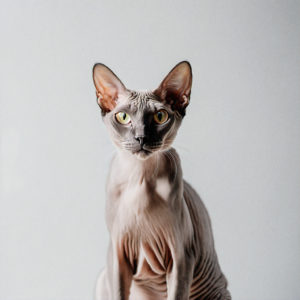
3. Donskoy
The Donskoy, also known as the Don Sphynx, is another Russian breed. They have a wrinkled appearance similar to the Sphynx but often have a more muscular build. Donskoys are known for their friendly and gentle nature, making them great companions for families.
Key Characteristics:
- Gentle and friendly
- Muscular and athletic
- Needs regular grooming to keep skin clean
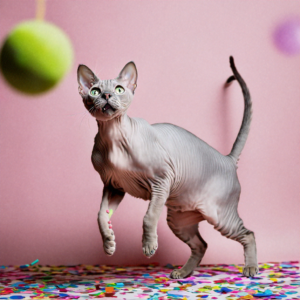
4. Ukrainian Levkoy
The Ukrainian Levkoy is a rare and unique breed with folded ears and a hairless body. They have an almost alien-like appearance with their large, almond-shaped eyes and distinctive facial features. Levkoys are affectionate and enjoy being around people.
Key Characteristics:
- Affectionate and social
- Unique folded ears
- Requires regular skincare
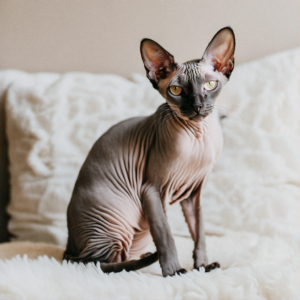
5. Bambino
The Bambino is a crossbreed between the Sphynx and the Munchkin, resulting in a hairless cat with short legs. Despite their short stature, Bambinos are very active and playful. They are known for being loving and enjoying human company.
Key Characteristics:
- Playful and energetic
- Short legs due to Munchkin ancestry
- Needs regular skin cleaning
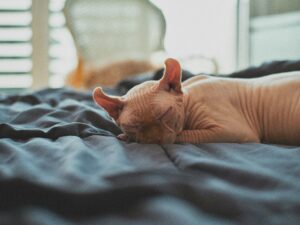
6. Elf Cat
The Elf Cat is a new and rare breed, a cross between the Sphynx and the American Curl. Their curled ears and hairless body characterize them. Elf Cats are highly sociable and enjoy spending time with their human companions.
Key Characteristics:
- Sociable and friendly
- Curled ears
- Requires regular bathing
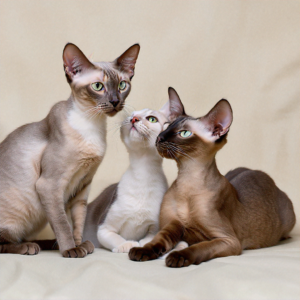
7. Minskin
The Minskin is a cross between the Sphynx, Munchkin, Burmese, and Devon Rex. They have a unique appearance with short legs and sparse fur on their extremities. Minskins are known for their playful and affectionate nature.
Key Characteristics:
- Playful and affectionate
- Sparse fur on legs, tail, and face
- Needs regular skincare
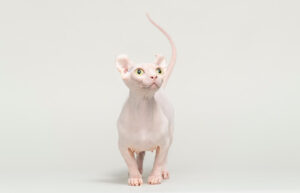
8. Dwelf
The Dwelf is a mix of the Sphynx, Munchkin, and American Curl. They have a distinctive look with short legs, curled ears, and a hairless body. Dwelfs are known for their loving and playful personalities, making them great pets for families.
Key Characteristics:
- Loving and playful
- Curled ears and short legs
- Regular skin cleaning required
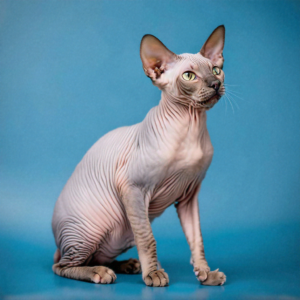
9. Kohana
The Kohana, also known as the Hawaiian Hairless, is an extremely rare breed with no hair follicles. They have a very smooth, rubber-like texture to their skin. Kohanas are friendly and enjoy the company of their human companions.
Key Characteristics:
- Very smooth skin with no hair follicles
- Friendly and affectionate
- Needs regular skincare
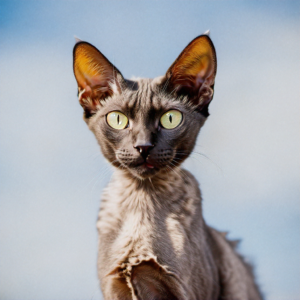
10. Lykoi
The Lykoi, also known as the “werewolf cat,” is not entirely hairless but has a patchy coat that gives it a unique appearance. They have a wild look but are incredibly friendly and affectionate. Lykoi cats are known for their hunting skills and playful nature.
Key Characteristics:
- Patchy coat with a wild look
- Friendly and playful
- Regular grooming needed

11. SphynxieBob
The SphynxieBob is a cross between the Sphynx and the American Bobtail. They have a hairless body and a short, bobbed tail. SphynxieBobs are known for their playful and affectionate nature, often forming strong bonds with their owners.
Key Characteristics:
- Hairless body with a bobbed tail
- Playful and affectionate
- Requires regular skin cleaning
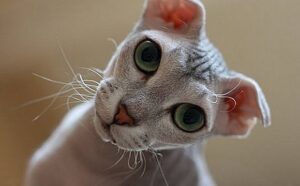
12. Levkoy Rex
The Levkoy Rex is a crossbreed between the Ukrainian Levkoy and the Devon Rex. They have a unique appearance with folded ears and a hairless body. Levkoy Rex cats are known for their friendly and social nature.
Key Characteristics:
- Folded ears and hairless body
- Friendly and social
- Needs regular skincare
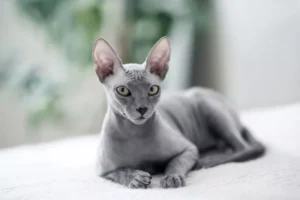
13. Don Hairless
The Don Hairless, also known as the Donskoy, is a breed from Russia with a hairless body and a muscular build. They are friendly and gentle, making them great family pets.
Key Characteristics:
- Muscular build
- Friendly and gentle
- Requires regular skin cleaning

14. Skinderlop
The Skinderlop is a crossbreed between the Sphynx and the Scottish Fold. They have a hairless body and folded ears, giving them a unique and adorable appearance. Skinderlops are known for their affectionate and playful nature.
Key Characteristics:
- Hairless body with folded ears
- Affectionate and playful
- Needs regular skincare

15. Burmese Hairless
The Burmese Hairless is a rare breed with a smooth, hairless body. They are known for their friendly and social nature, making them excellent companions. Burmese Hairless cats are playful and enjoy interacting with their human companions.
Key Characteristics:
- Smooth, hairless body
- Friendly and social
- Requires regular skincare
Final Thoughts: Are Hairless Cats Hypoallergenic?
While hairless cats like the Sphynx are often thought to be hypoallergenic, they can still cause allergies due to the presence of the Fel d 1 protein in their skin oils and saliva. No cat breed is free of allergens. However, some people with allergies may find hairless cats less irritating than other breeds. If you’re considering a hairless cat and have allergies, spend time with the cat first to see if you react, and be prepared for regular cleaning and grooming to manage allergens.
FAQS: Are Hairless Cats Hypoallergenic?
- Are hairless cats ok for allergies?
Hairless cats, like the Sphynx, can still cause allergies, but some people find them less irritating than other breeds. - Which cat is the most hypoallergenic?
The Siberian cat is often considered the most hypoallergenic due to its lower levels of Fel d 1 protein, a common allergen. - Which cat is worst for allergies?
Cats with long fur and high levels of the Fel d 1 protein, such as the Persian, are often the worst for allergies. - Can I have a cat if I’m allergic?
Yes, but it requires careful management, such as choosing a hypoallergenic breed, frequent cleaning, and possibly medication. - Can you become immune to cat allergies?
Some people may develop a tolerance over time, but true immunity is rare. Allergy treatments and exposure therapy can help reduce symptoms.

I am a dedicated writer and expert in cats, with years of experience studying feline behavior, health, and breeds. Passionate about sharing my knowledge, I provide valuable insights and practical advice to help cat lovers understand and care for their furry companions. When not writing, I enjoy spending time with my beloved cats, continually learning and deepening my expertise.
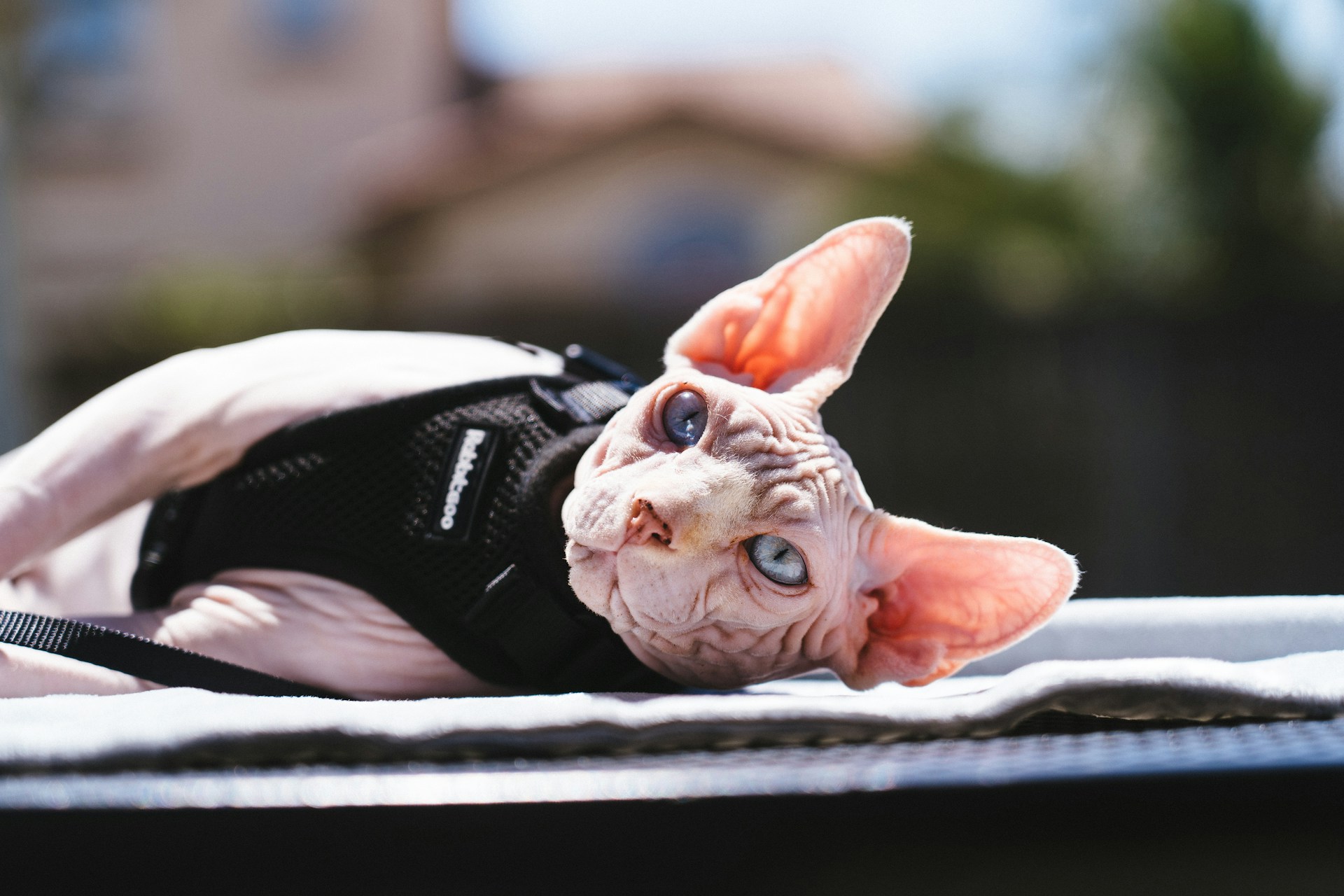
Leave a Reply